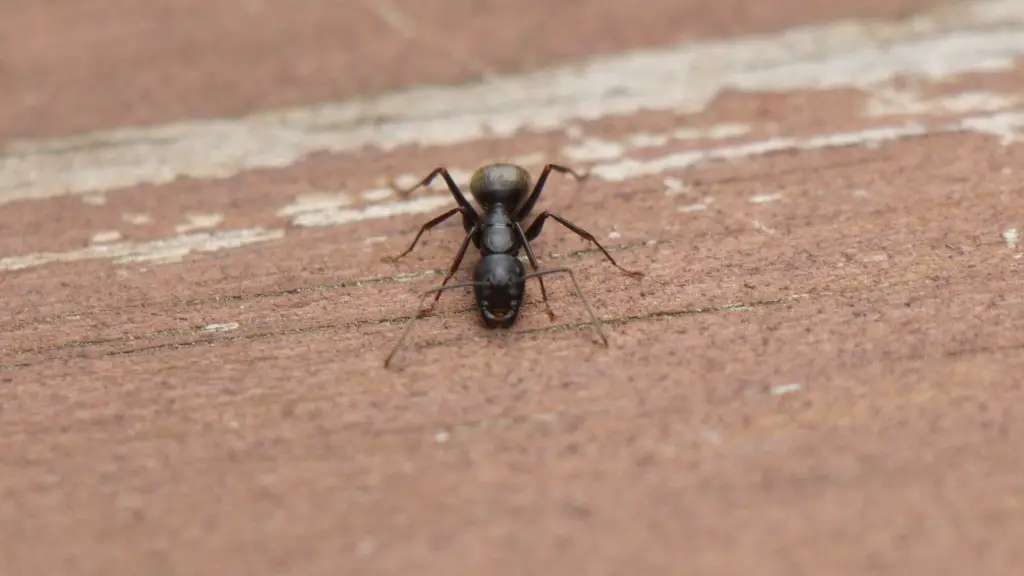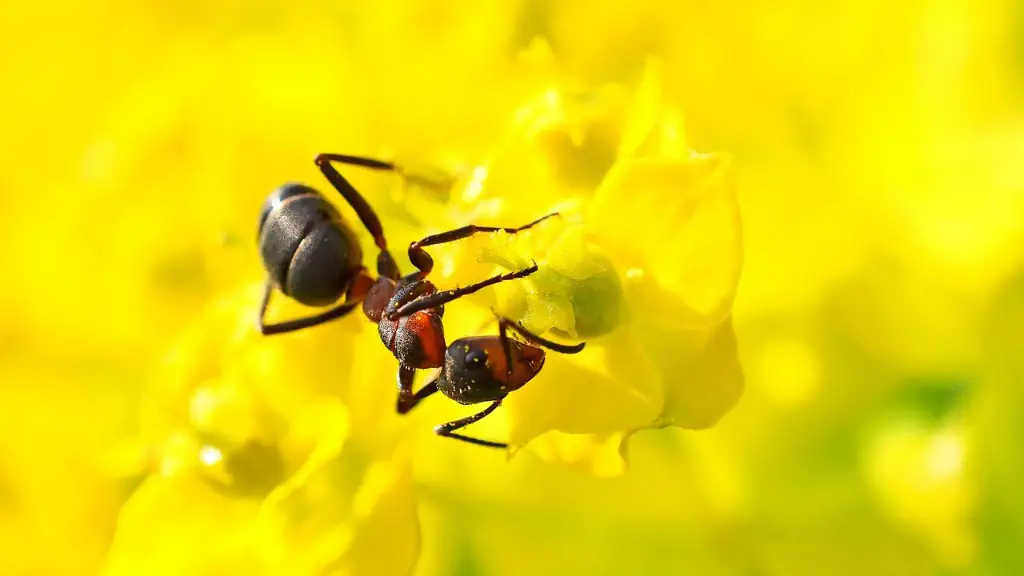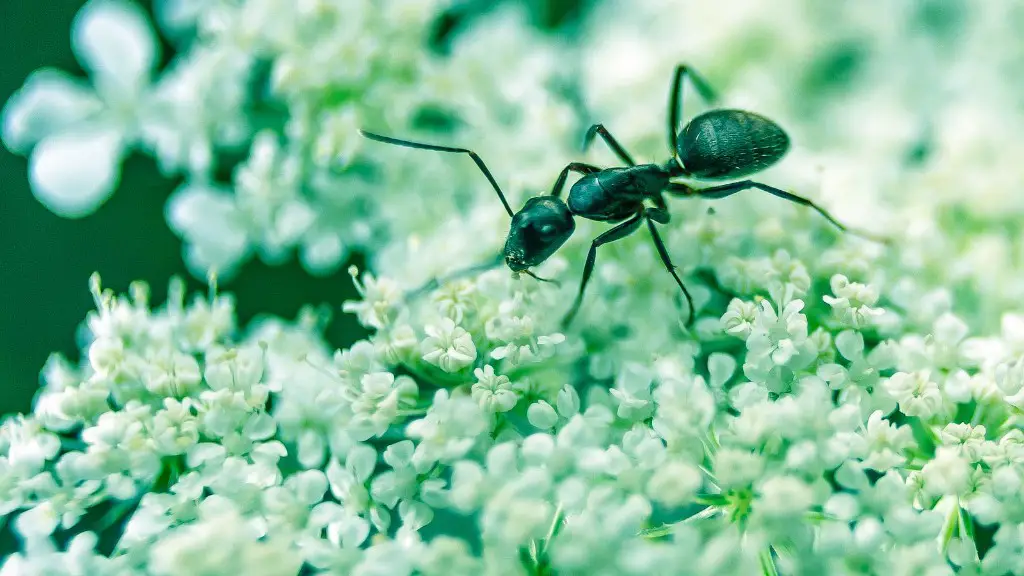What is an Ant Bite?
Ant bites are usually painless but may be irritating if the ant is venomous. In some cases, an ant bite can cause a swollen red bump or even a welt that could be mistaken for a sting or a burn. In the worst cases, an ant bite can lead to an allergic reaction such as a rash, hives, or even anaphylaxis.
Ants can be found almost everywhere, from forests, backyards, and even inside homes. They come in a variety of sizes and colors, and are usually harmless. However, some ant species possess a potent venom that can cause a painful bite.
What kinds of Ants Bite?
Most ants won’t bite, but some are capable of piercing human skin with their sharp mouthparts. The most well known ant species that bite are fire ants, harvester ants, velvet ants, and the bullet ant.
Fire ants are some of the most notorious species for their aggressive nature and painful bites. They are easily identified by their reddish brown color, which darkens with age. Fire ants are common throughout the southeastern United States and have a highly potent and painful sting.
Harvester ants are another ant species that can bite. They are native to the western United States and Mexico and vary in size and color. They are usually black or reddish brown in color and can be identified by the small mound they build near the entrance of their nests. Harvester ants are known for their painful bite that can last for several days.
Velvet ants are another species of ant which can bite. Although they don’t sting, they do have powerful jaws that can pierce the skin. Velvet ants are usually red and black and have a furry appearance due to their thick covering of hair.
Finally, the bullet ant is one of the most feared species due to its venomous sting. Native to Central and South America, the bullet ant’s venom packs a particularly painful punch that can last for up to 24 hours.
What Happens During and After an Ant Bite?
When an ant bites, the venom usually causes a burning sensation followed by a sharp pain. After the initial bite, the area around the bite may swell and become red. In some cases, it can become itchy or tender and may even develop small bumps. In serious cases, an ant bite can cause anaphylaxis, a serious allergic reaction which can be life-threatening.
Most ant bites heal on their own and do not require medical attention. However, if the area around the bite becomes red, swollen, or painful, it is recommended to seek medical attention. In cases of anaphylaxis, emergency medical help should be sought immediately.
What Can be Done to Prevent Ant Bites?
The best way to prevent ant bites is to eliminate any access points that might allow ants to enter your home. Make sure to seal off windows, doors, and cracks in the walls, as well as any other potential entry points. Additionally, make sure to keep food stored properly and to avoid leaving crumbs or scraps of food lying around.
In areas where ants are particularly common, it can be helpful to use some sort of ant repellent. Sprays and baits that contain insecticides can help to keep ants away from your home. If you plan on visiting an area where ants are common, it is a good idea to wear insect repellent clothing that has been treated with permethrin.
The Impact of Ant Bites
Although ant bites are not usually serious and typically heal on their own, they can still have an impact on people’s lives. Because some species are potentially dangerous and can cause allergic reactions, it is important to be aware of the danger posed by ants and to take the proper precautions.
In rare cases, an ant bite can be serious and lead to anaphylaxis. It is important to recognize the signs of an allergic reaction and to seek emergency medical help when necessary. Taking the proper precautions can help to minimize the risk of experiencing an ant bite and the potential health complications that may arise.
Ants in the Environment
Ants are an important part of the ecosystem and play an important role in the breakdown of organic matter. They are also important in pest control, as they can help to limit the population of other insects or animals that might otherwise cause damage to crops and farms.
Despite their ecological importance, the spread of certain ant species can cause problems in some areas. In the United States, fire ants, harvester ants, and velvet ants are all considered to be invasive species and can cause significant damage to the environment.
Scientific Studies on Ant Bites
Researchers have been studying the effects of ant bites for decades. In recent years, there have been several studies which have focused on the venom of different ant species and its potential dangers.
A study conducted by researchers at the University of Nebraska found that some ant species can cause serious allergic reactions, such as hives and anaphylaxis. Another study conducted in Arizona showed that some ant bites can lead to an increased risk of infection if left untreated.
Natural Remedies for Ant Bites
If you are unfortunate enough to experience an ant bite, there are some natural remedies that may help relieve the symptoms. Applying a cold compress or a paste made from baking soda and water can help reduce the swelling and itching associated with ant bites.
Aloe vera and tea tree oil are also popular natural remedies for ant bites. They can both help to speed up the healing process and reduce inflammation. Additionally, taking an antihistamine such as Benadryl can help to relieve the itching associated with ant bites.
Psychological Impacts of an Ant Bite
Although an ant bite may seem minor, it can have a significant psychological impact on some people. For instance, it may lead to fear of insects or a fear of going outside. This fear can be debilitating and can even lead to agoraphobia or social anxiety.
It is important to recognize the psychological effects of an ant bite and to seek help if needed. Therapy is an effective way to manage the fear of ants and can help to reduce the likelihood of future ant bites.
Conclusion of Ant Bites
Ant bites can be painful, irritating, and even dangerous. Some ants can cause allergic reactions that can be serious, while others can cause an increased risk of infection. It is important to be aware of the potential dangers posed by ants and to take the proper precautions to prevent ant bites. If you are unfortunate enough to experience an ant bite, make sure to seek medical attention if necessary and to use natural remedies to relieve any symptoms. Finally, it is important to recognize the psychological impacts that an ant bite can have and to seek help when needed.


